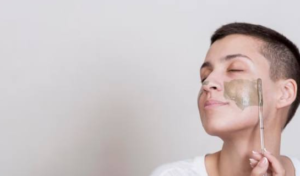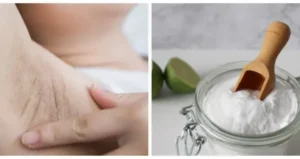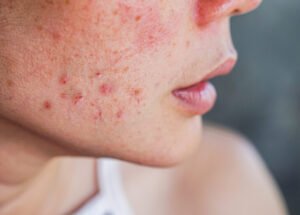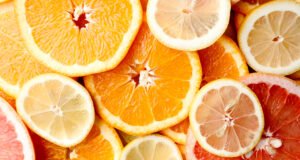The skin is the largest organ in the human body: it accounts for 5% of our weight. Its role is to protect us from external aggressions due to the environment, but also to control our body temperature (thermoregulation). The skin is a reflection of our emotions and plays an unsuspected role in our social life. In short: let’s protect it from premature aging!
First, it is important to understand how our skin works to prevent damage. The skin is made up of three layers:
- The epidermis (skin coloring thanks to melanocytes),
- The dermis (role of support and firmness of the skin, thanks to collagen, among other things)
- The hypodermis (contains fat and blood vessels).
What are the differences between “young” and “aged” skin?
First of all, we must differentiate between the two types of aging: extrinsic and intrinsic aging.
➡️ Extrinsic aging of the skin
This is the one we can act on. It is linked to the environment, UV rays, tobacco consumption, an unbalanced diet rich in ready-made meals (vacuum-packed, containing many additives, very salty, fast food), or even alcohol consumption.
These actions, sometimes seemingly harmless, create an external aggression on the skin. Over time, they cause irreversible and deep damage. The effects appear on the epidermis as brownish or white (achromic) spots.
➡️ Intrinsic aging of the skin
We have very little power over the intrinsic aging of the skin. This is the natural evolution of the skin with age, which results in a loosening of the fibers in the dermis, or even a thinning of the epidermis. Over time, the skin becomes fragile. In women, this weakening is further exacerbated during menopause and the gradual disappearance of estrogen. This type of skin aging varies from one person to another: it is a hereditary factor that is passed down from generation to generation.
How can I slow down the aging of my skin?
🍏 Through healthy living, as early as possible
- Eat a balanced diet, don’t smoke, and drink alcohol in moderation.
- Avoid intense sun exposure and protect yourself by applying sunscreen with a high SPF. This reduces the passage of UV rays into the dermis and the weakening of collagen proteins.
Applying sunscreen does not prevent the stimulation of melanocytes, and therefore does not prevent tanning.
🧴 By using “anti-aging creams”?
Most anti-aging creams contain hyaluronic acid and exogenous collagen. These compounds are naturally present in the skin. They give it strength, hydration, and suppleness. These creams also contain various vitamins, such as vitamin C (toning) or coenzyme Q10 (antioxidant). From a purely scientific perspective, these anti-aging cream formulas work on bare tissue “in vitro.” But “in vivo” (i.e., on real skin), you shouldn’t expect too much. The benefits are certainly there (the skin is more toned and more hydrated), but to a degree far removed from the promises made in advertisements.
In short, these creams tone, invigorate, and improve the very composition of the skin. This is likely due to overall hydration, not “targeted action” on collagen fibers or other architectural components of the skin. Using an anti-aging cream should be seen as a skin care method, not a miracle formula capable of correcting years of physical and environmental stress.
In conclusion, the best way to take care of your skin is to take care of your body as a whole (physical activity, balanced diet, avoiding exogenous toxins – pollution, sun, tobacco, etc.). It is worth taking care of your skin with a so-called “anti-aging” cream. However, make sure to choose natural, organic compounds with high moisturizing levels without too many additives.























+ There are no comments
Add yours